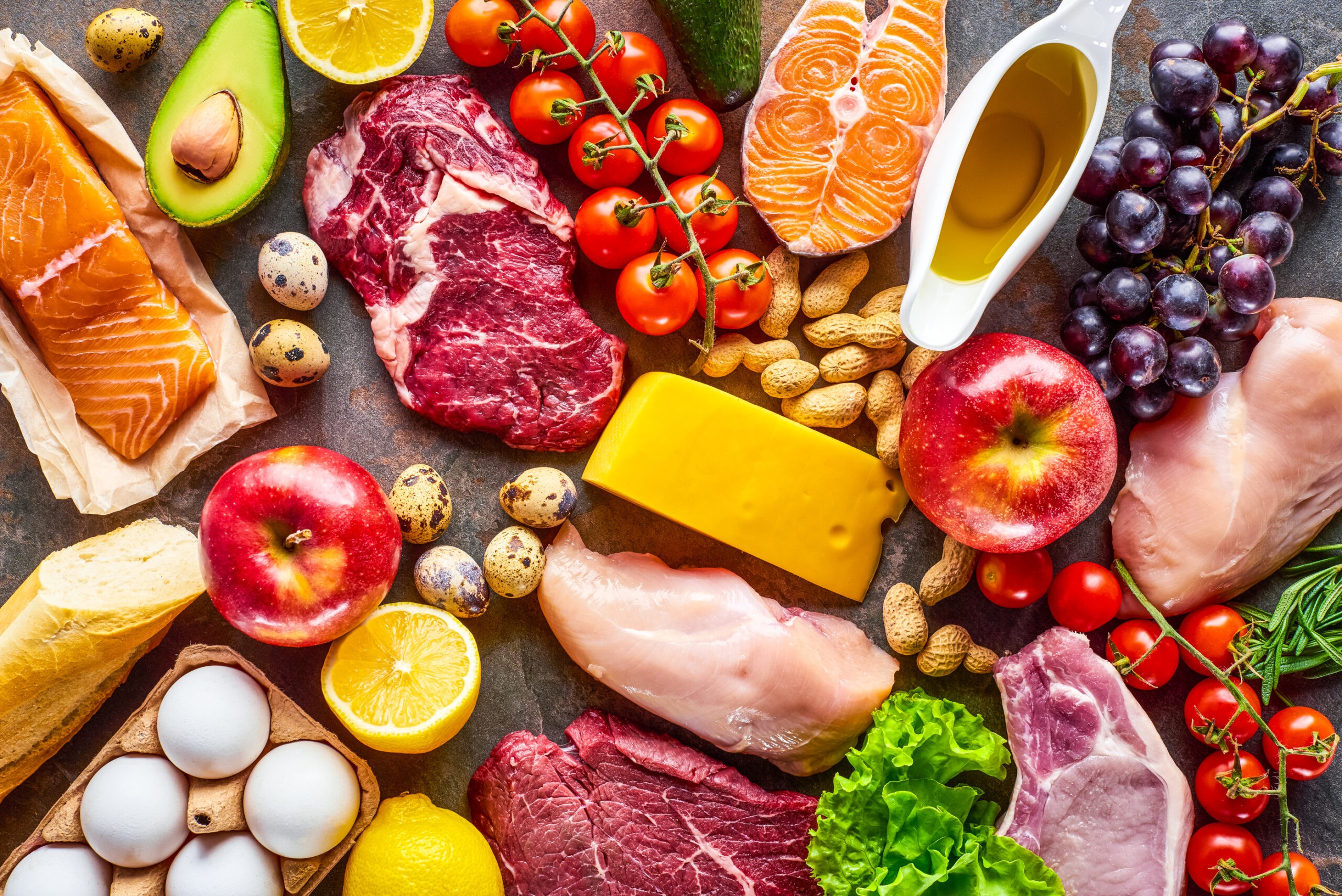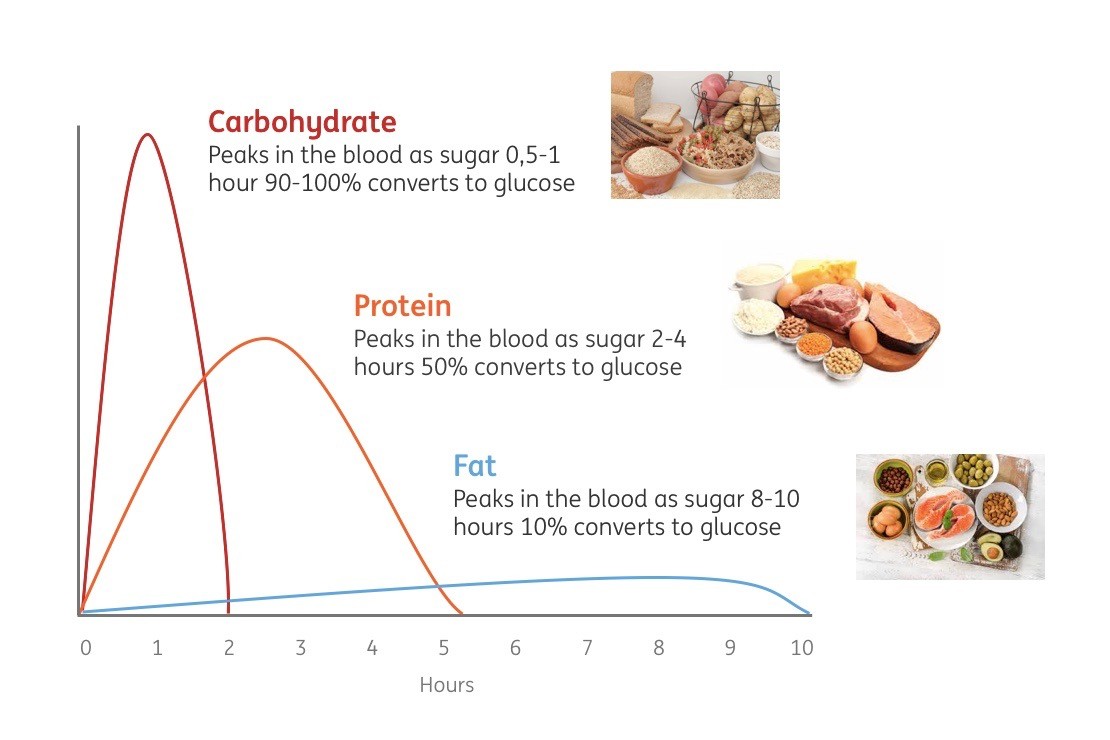Looking to enhance your overall wellbeing? Start with what you do every day, throughout the day, every day of your life: Eat.
Why Eat?
The food choices you make have a big impact on your energy, your focus and your overall ability to perform. A healthy diet can prevent – and in many cases reverse – diseases and dysfunction in any part of your body. Eating healthier simply offers a major opportunity to live a better life.
Eating for Energy
The relationship between food, and your health and wellbeing is extremely complex and continuously under debate. There is however a growing consensus about how eating specific nutrients improves your metabolic health, the generation of new cells in your brain, the activity of important bacteria in your gut and the regulation of anti-inflammatory genes.
For example, carbohydrates break down into glucose, fats into fatty acids and protein into amino acids. Because of this, your cells can grow, duplicate, repair themselves and create the energy source which drives all these processes, making it possible for you to breathe, move, think and feel.
There is also a growing consensus about how eating specific nutrients (vitamins and minerals) and avoiding others (refined sugars and trans fats) can improve your metabolic health, the generation of new cells in your brain, the activity of important bacteria in your gut, and the regulation of anti-inflammatory genes. All in all, science keeps creating valuable insights, which show how eating specific nutrients and foods can improve energy and performance, and thus enhance your wellbeing.
Find Out what is Good for You
If you feel pretty skeptical about just any advice you get on nutrition, you’re not alone. The information can be quite confusing. Just one night of binge-watching food documentaries will offer you at least ten different views on what is good for you and what is not. Each of them backed up by nutritional experts from around the globe. For every expert online and/or in books who tells you a certain food or nutrient is good, you’ll find at least ten others stating the complete opposite.
However, when you start looking for commonalities between the different approaches, you’ll find that there are a number of things that most of them agree on. There is actually a growing consensus in the scientific community about what is best for most people in regard to their health and wellbeing.
Your Personal Needs
The reason why I stressed ‘best for most people’ is that, depending on a whole list of variables, people can react differently to the nutrients they eat. A well-known example is lactose, found in dairy products.

While roughly two-thirds of the world’s population is sensitive to lactose, and malabsorption rates are close to 100% in some countries, there are also countries where the prevalence of malabsorption is below 4%. For example, the vast majority of people living in South Korea have difficulties dealing with lactose, which in practice means that drinking more than two glasses of milk per day will harm their health. At the same time, most people in Ireland can consume larger quantities of dairy products without any complaints.
Most people are, to some extent, aware of the fact that depending on their background, they may react differently to certain foods, and they are also practically guaranteed to know someone who is allergic or hypersensitive to a particular substance. Less known is that within seemingly homogenous groups of people, those with the same backgrounds and without known allergies or medical conditions, the response to specific foods or combinations of foods can also vary significantly. To make things even more complicated, people can react differently to the same foods, at different times in their life. They react differently because their system will develop different needs and will be better or worse at dealing with specific foods and nutrients.
Your Individual Response to Food
The reason why your body might react differently to the exact same food is that its response is influenced by a long list of factors, many of which change during your life. Your age, sex, DNA, metabolic health, gut microbiome, lifestyle, and even your mindset can all directly influence how your body reacts to what you eat. For example, while people generally react in the same way after eating white bread – in the sense that their blood sugar levels increase significantly after consumption – this is not the case for everybody. For some reason, people respond differently to the starch in white bread, which has a high glycemic index (GI). This means that it will generally lead to a rapid surge in blood glucose levels after consuming it, especially when eating large quantities, but not for everyone.
Recent findings emphasize the differences in how people respond to the food they eat and are beginning to explain why some people never gain weight or develop diabetes, even when they consume large amounts of simple carbohydrates, whereas others feel that they gain weight by simply ‘looking at food’ that is high in sugars or refined carbs in general, or experience sugar highs and lows for the rest of the day after having a high carb breakfast.
Personalized Nutrition
In the future, when today’s children will have become adults, it will be possible, and practical, to closely monitor your body’s response to foods. With the help of new sensor technologies and automated intelligence, you will be able to obtain nutritional advice tailored to your personal needs, around the clock.
While many top athletes are already benefitting from the new possibilities that personalized nutrition has to offer, it’s good to realize that the data analysis tools that support personalized nutrition are effectively still in their adolescence. In practice, this means that it’s possible to obtain valuable insights from extensive lab tests, to check the nutrient values in your blood at fixed times, or to check them before and after consuming standardized meals, as well as by testing your DNA for genetic variations related to absorption of specific nutrients. However, it generally costs a lot of time and money, and translating the results into practical advice still demands a lot of expertise and has many limitations.
Food Fundamentals
For now, until personalized nutrition has developed into maturity, and is available to the general public, it’s comforting to know that there are many foods and nutrients to which the vast majority of people react pretty much the same. Educating yourself about them, to better understand how they (the foods and the nutrients inside them) are likely to impact your body, is a good place to start. Find out which foods and nutrients are best for you.











